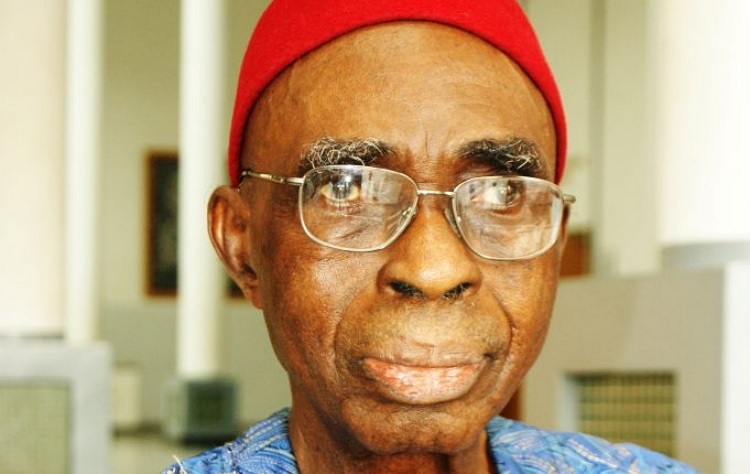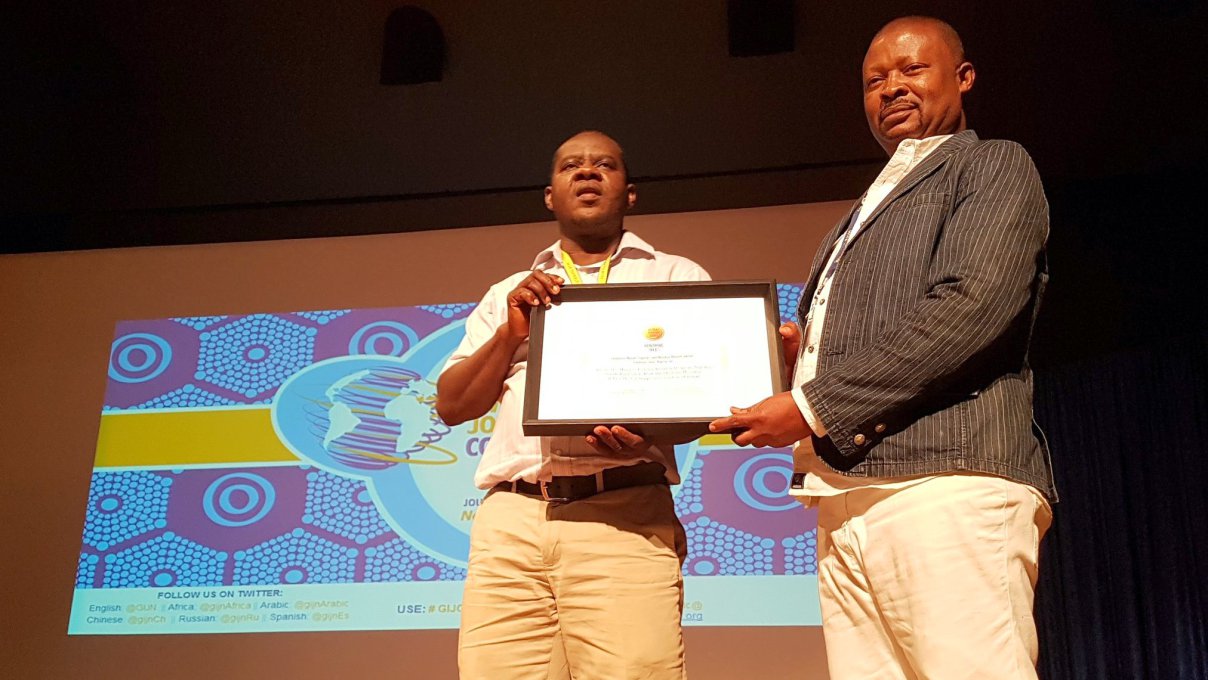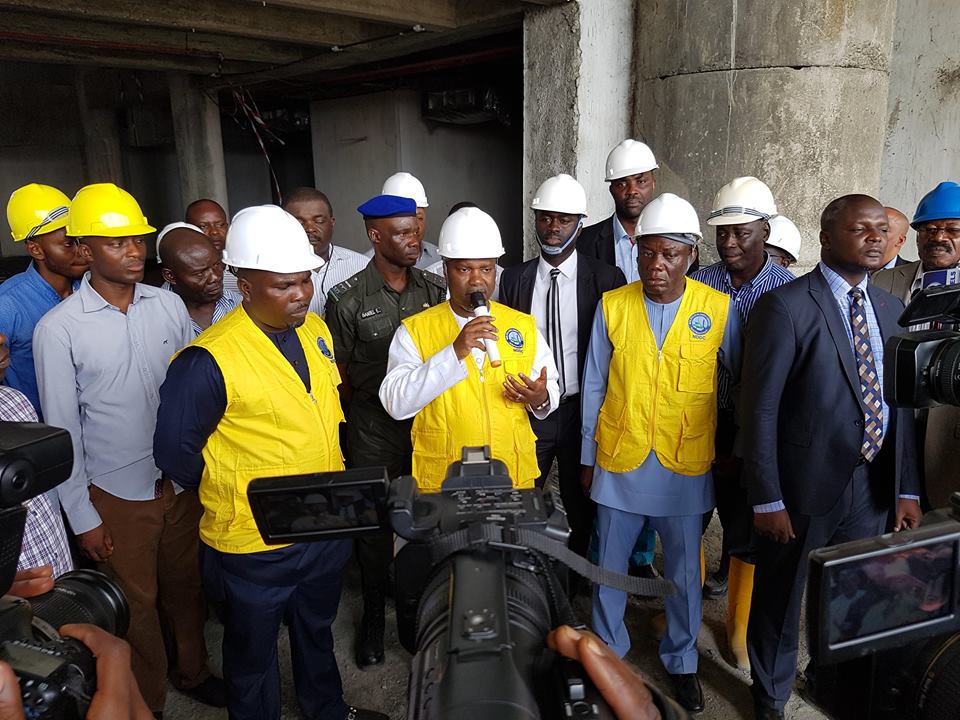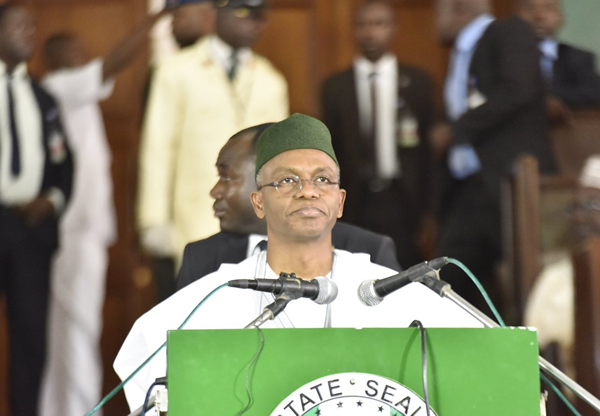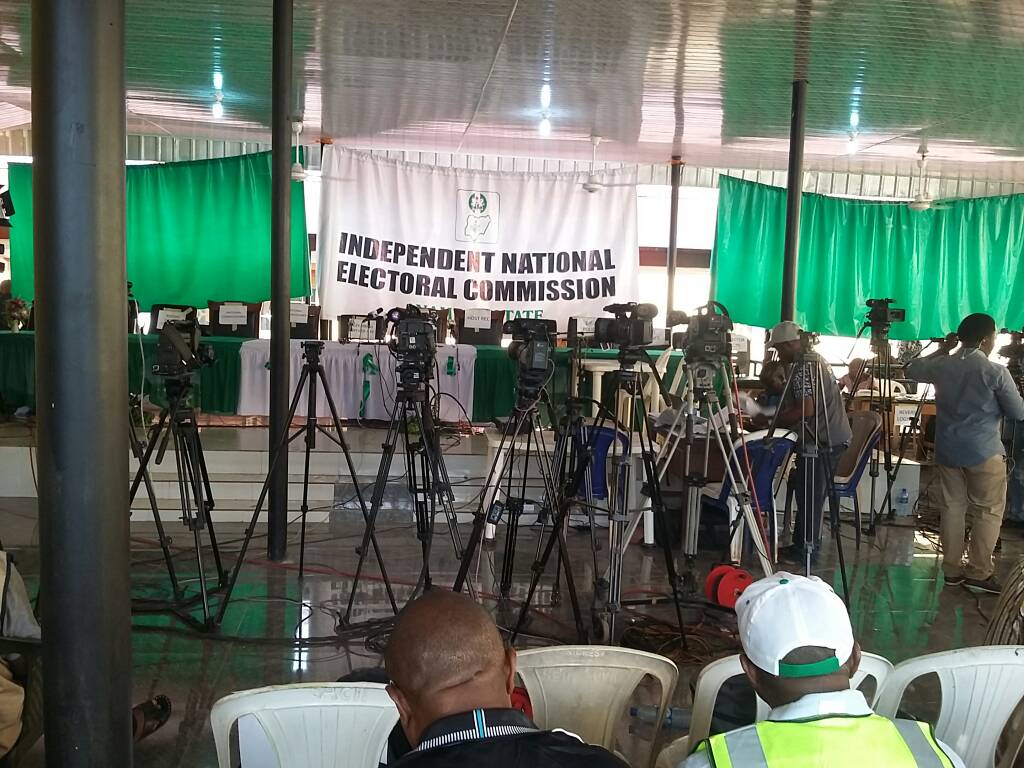BY ORJI OGBONNAYA ORJI
All roads lead to Umukabia, Umuahia, on Saturday 18th of November 2017 as Nigerians from far and near travel to Abia state capital to bid fare well to one of the pre-colonial leaders and a founding father of the media profession in Nigeria, Chief Bob Ogbuagu.
Ogbuagu died at the age of 92.
The burial today is the climax of series of events put in place by his family, colleagues, associates and committee of friends for Nigerians to pay last respect to the elder statesman and fallen media executive.
Advertisement
A founding member of the zikist movement, Bob Ogbuagu was among the early nationalists who were in the frontline in the struggle to free Nigeria from colonial rule. Chief Ogbuagu’s specific role in the struggle was executed through coordinated public enlightenment, citizens mobilization and advocacy using the media.
Born on May 25, 1925 in Umukabia, near Umuahia, Abia State, Bob Ogbuagu joined the Zikist Movement as a young man shortly after his early education in 1945, but his passion, commitment and sacrifice to the independence struggle informed his decision to set up a newspaper called the Northern Advocate. The newspaper served as a mouthpiece for efficient dissemination of information, provided a platform for constructive debates, citizens engagements towards the liberation of Nigeria from British rule. As part of his efforts to ensure that his newspaper – the Northern Advocate provided the much needed national platform, he decided to set up the newspaper in Kaduna, one of the major centers of political activism in Nigeria.
The newspaper rapidly grew in leaps and bounds to become a strong megaphone for all anti-colonial struggles and independence campaigns especially in the Northern part of the country. As the editor-in-chief of the anti-colonial newspaper – the Northern Advocate, Bob Ogbuagu worked closely with other members of the zikist movement such as Anthony Enahoro, Kola Balogun and MCK Ajuluchukwu. They led grassroots-based campaigns for termination of colonial rule and independence for Nigeria. Following the anti-colonial editorial policy of his newspaper, Bob Ogbuagu was among the leaders of the zikist movement who were arrested and thrown into prison in 1949.
Advertisement
While he served his sentence in Jos prison, his newspaper, the Northern Advocate was proscribed the following year, in February 1950. On his release from prison, Bob Ogbuagu relocated from his base in Kaduna to Eastern Region where he teamed up with other pre-independence leaders like Dr. Nnamdi Azikiwe and Dr. Michael Okpara to continue the struggles.
Following the granting of independence to Nigeria in 1960, Bob Ogbuagu served in the Eastern regional government in various capacities. The high point perhaps was his appointment as the chief executive of the then Eastern Nigeria Development Commission (ENDC). The commission was charged with the responsibility of conception, development and implementation of all major capital projects for the Eastern region then comprised of the present Enugu, Anambra, Imo, Abia, Rivers, Akwa Ibom and Cross, Bayelsa and Rivers States.
The development projects of the then Eastern Nigeria Development commission with Bob Ogbuagu as chief executive were unfortunately disrupted by the Nigeria civil war of 1967 to 1970. After the war, Chief Bob Ogbuagu was among the few political leaders invited to help heal the wounds of the war under the framework of the national reconciliation, reconstruction and rehabilitation programs initiated by the Gowon administration.
By this measure, Bob Ogbuagu renewed his service to the nation through several committees and governing boards in both public and private sectors. For instance, in 1980, Bob Ogbuagu was elected President of Nigeria Institute of Public Relations, a position he held until 1984. While leading the NIPR in Nigeria, Bob Ogbuagu won the chairmanship of the Federation of African Public Relations Associations at the conference of the organization held in Nairobi, Kenya. He returned to the media industry in 1995 following his appointment as managing director and editor-in-chief of Champion Newspapers. He bowed out graciously from active media practice in the year 2000.
Advertisement
One striking feature of Bob Ogbuagu’s national service history was his uncommon humility and dedication to step down his influence and time to development issues that confronted his native community Umukabia. On his death, the community attests to his pioneering roles in coordinating all major self- help development projects in the areas of rural roads, health care and school rehabilitation projects. In appreciation to his enduring excellent service to humanity and his country, Chief Bob Ogbuagu was conferred with a national honour of the Officer of the Order of the Niger OON.
As his casket is to be lowered on Saturday 18th of November, the media and public relations industry, in particular, has no doubt lost a mentor and a professional archive. His community, Umukabia, Abia State and Nigeria in general have also lost an illustrious son and a patriot. However, one way to immortalize Chief Bob Ogbuagu is to promote, nurture and sustain the virtues of hard work, love for man and country for which he lived, toiled and died.
Orji Ogbonnaya Orji, a renowned journalist and public affairs analyst wrote from Abuja.
Advertisement
Add a comment
